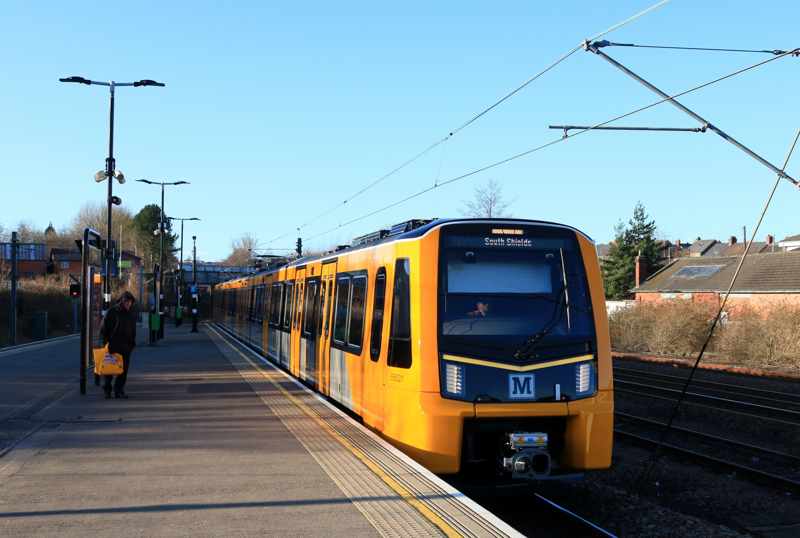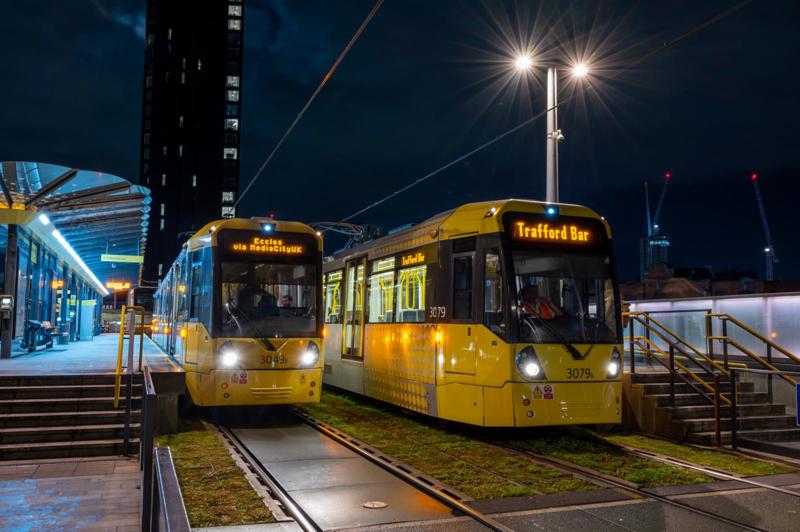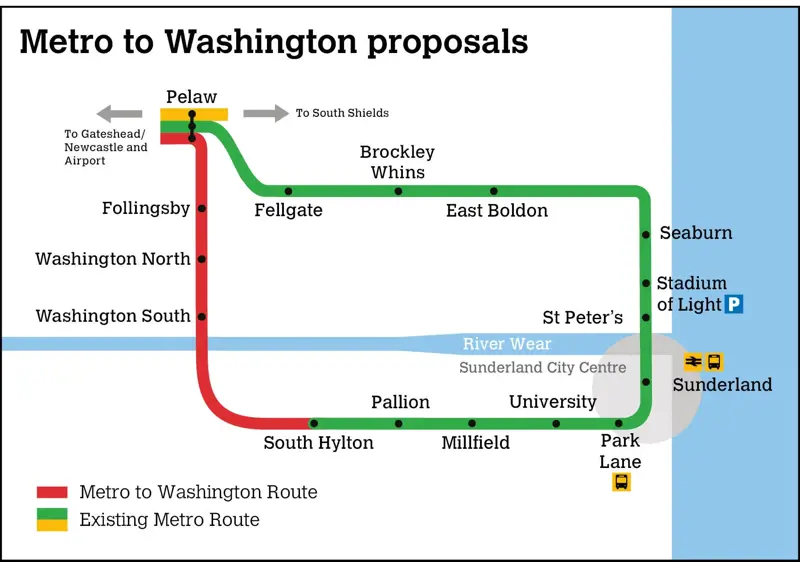
Tram-trains in Greater Manchester, an extension to the Tyne and Wear Metro and a new platform are all projects that are set to benefit from a government injection of more than £15 billion into regional transport schemes across England.
Chancellor Rachel Reeves is today announcing £15.6bn in funding in local transport projects ahead of next week’s Spending Review, 11 months after the government paused a similar plan announced by the Conservatives in 2023.
A lot of the money, allocated from 2027/28-2031/32, will be spent on tram and bus projects in various locations.
The areas benefitting are:
Greater Manchester - £2.5bn
- Metrolink extension to Stockport town centre and new tram stops in Bury, Manchester and Oldham.
- Fully electric Bee Network with zero emissions across bikes, bus and trams by 2030, including 1,000 new electric buses.
West Midlands - £2.4bn
- Metro extension connecting Birmingham City Centre to new sports quarter.
West Yorkshire - £2.1bn
- Spades in the ground to start building West Yorkshire Mass Transit by 2028, with aim for first services by mid-2030s.
- New bus stations at Bradford and Wakefield as part of the transformation of six transport corridors.
East Midlands - £2bn
- Designing a new mass transit system to connect Derby and Nottingham which will include rail, road and bus improvements.
North East - £1.8bn
- Metro extension linking Newcastle and Sunderland via Washington.
Liverpool City Region - £1.6bn
- £100 million for three new rapid bus transit routes to Liverpool John Lennon Airport, Anfield and Everton’s new stadium.
- Brand-new buses for the franchised bus network in 2026 and 2027.
South Yorkshire - £1.5bn
- £530m to renew the tram network with new vehicles, modernised tram stops and maintenance to improve existing reliability.
- £350m for buses with franchised buses in Sheffield, Doncaster and Rotherham by 2027 and the rest of the county by 2029.
Tees Valley - £1bn
- £60m for a third platform at Middlesbrough station.
West of England - £0.8bn
- £150m to improve rail infrastructure including funding to support plans for more services between Brabazon and Bristol city centre.
- £200m for mass transit development between Bristol, Bath, South Gloucestershire and North Somerset.
The government is billing this as a renewal of locations around England to “make all parts of the country better off”.
Reeves is expected to say in Greater Manchester that “a Britain that is better off cannot rely on a handful of places forging ahead of the rest of the country”.
Transport for Greater Manchester said Oldham, Rochdale, Heywood and Bury would be "connected to each other as we begin delivery of new tram-train services", as well as the Metrolink extension to Stockport.
New transport interchanges in Leigh and central Manchester will also be created, while the plans to integrate Greater Manchester rail services into the Bee Network will continue.

Andy Burnham, Mayor of Greater Manchester, said: “With a pipeline of major transport projects better connecting our towns and cities, and local rail lines brought into the Bee Network, our communities will be the first outside London to be served by fully joined-up bike, bus, tram and train travel."
In the North East a new Tyne and Wear Metro line linking Newcastle and Sunderland with stops at Follingsby, Washington North and Washington South, before joining the existing line at South Hylton, creating a loop.
North East Mayor Kim McGuinness said it was a "game-changing moment" for the region.
Nexus said the project is expected to cost £900m with work to draw up detailed plans well under way. It's hoped the route will be open in time for trains to run in 2033.

West Yorkshire Combined Authority, which is behind the West Yorkshire Mass Transit network, said it aims to create two tram lines in phase one of the project: a Leeds Line between St James’ University Hospital and White Rose, and a Bradford Line connecting Bradford and Leeds city centres.
The Department for Transport has said the funding is a more than double real-terms increase in capital spending on city regions’ local transport by 2029/30 compared to 2024/25.
Transport Secretary, Heidi Alexander, said it was a “watershed moment on our (the Government’s) journey to improving transport across the North and Midlands”.
She added: "For too long, people in the North and Midlands have been locked out of the investment they deserve. With £15.6bn of Government investment, we're giving local leaders the means to drive cities, towns and communities forward.”
Henri Muson, Chief Executive of the Northern Powerhouse Partnership, said: “The economic revival of Greater Manchester, which has been enabled by long term transport investment in the tram in particular, has seen the productivity gap with London begin to close. To sustain that progress, and see it replicated to the same extent in all our regions across the North, we need both improved connectivity across the North as TransPennine Route Upgrade will improve significantly, as well as improvements to get around within city regions.”
The previous Conservative government had previously said money earmarked for building HS2 towards Manchester would be diverted towards other transport schemes.
This led to the creation of City Region Sustainable Transport Settlements as part of the Network North plan, which promised funding to mayoral combined authorities through to 2031/32.
However, the Labour administration paused the scheme after taking office last July, saying their predecessors had made £2.9bn of unfunded transport commitments.
However, ahead of next week’s Spending Review, the government has confirmed brand new capital funding is now available for these transport schemes.
A government source said the money was "not actually there" when the Conservatives announced its plan in 2023, but Labour was "investing it as part of the new Spending Review".















Login to comment
Comments
No comments have been made yet.